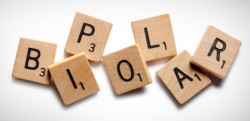What you Must know About Bipolar Disorder and Addiction
Bipolar disorder is a common problem amongst those who suffer from addiction. In fact, many individuals who suffer from an addiction to drugs or alcohol find themselves struggling with substance abuse as a result of an attempt to self-medicate for another underlying health problem such as anxiety, depression or bipolar disorder. If you have been diagnosed with bipolar disorder, or if you suffer from addiction and believe that you may also suffer from a co-occurring mental health condition, there are some things you should know:
Underlying Mental Illness is Often Misdiagnosed
It’s very common for an individual who suffers from bipolar disorder to be improperly diagnosed as a result of their substance abuse. If you or someone you love is receiving treatment for addiction, depression or anxiety could be the result of the changes in your substance use, but these symptoms can also be a sign of bipolar disorder. Often times, doctors will miss the diagnosis of this common, and serious condition as a result of their attributing the symptoms to general detox and withdrawal. Don’t be afraid to seek a secondary opinion or diagnosis if you are unsure or unhappy with the diagnosis that is provided by your treatment professional.
Assessment is Vital
If you suffer from any underlying health condition, be it mental or physical in scope, assessment will play a vital role in determining the severity of the condition. Through proper screening of your symptoms, a healthcare provider or treatment professional will be able to evaluate you and provide an accurate diagnosis of your condition. Bipolar disorder, like other mental health conditions, can be accurately diagnosed with proper assessment.
It’s Very Common to Suffer from Bipolar Disorder and Addiction
As previously stated, it’s very common for an individual to be diagnosed with a mental health condition such as bipolar disorder in addition to the diagnosis of a substance abuse disorder or addiction. Individuals living with bipolar disorder may self-medicate using drugs or alcohol in an effort to counteract or cope with the highs and lows of the disease. Drug or alcohol addiction is a common counterpart to bipolar disorder.
Use of Drugs or Alcohol May Escalate Bipolar Disorder
It’s very common to suffer from bipolar disorder but to cope with the symptoms in a way in which the disorder remains somewhat masked from outside view. When drugs or alcohol are used, symptoms may present more strongly or more predominantly over than before. Extreme mood swings are often seen in those who use drugs or alcohol and also suffer from bipolar disorder.
Dual Diagnosis Treatment is Essential
Anytime a condition such as bipolar disorder and addiction is present, treatment becomes an essential element of recovery and healing. Bipolar disorder can trigger addiction; addiction can trigger bipolar disorder; combined, patients who suffer from both bipolar disorder and addiction require specialty dual diagnosis treatment to ensure the safe recovery and healing that they deserve.
Bipolar Disorder Treatment Reduces Relapse Risk

Treatment for bipolar disorder reduces the risk of relapse.
Individuals who suffer from bipolar disorder and receive treatment are less likely to relapse than those who only receive treatment for their addiction. If you or someone you love suffers from both bipolar disorder and a substance abuse problem, it’s essential that you receive treatment for both conditions simultaneously in order to ensure the greatest chance of healing and recovery. Studies show that individuals who receive treatment for bipolar disorder as well as for their addiction are more likely to remain sober because treatment helps to reduce cravings for drugs or alcohol by providing the patient with mental clarity and stabilization.
Medications Can Help
Bipolar disorder is often managed well with medications that help to stabilize the chemical imbalance that causes the extreme highs and lows of this condition. When patients who suffer from bipolar disorder are provided with medication to balance their mental capacity, addiction becomes more manageable as well. Patients who receive medication no longer feel such a significant need to self-medicate in an effort to cope with their previously disruptive symptoms of anxiety, depression, elation or a combination of these.
Co-Occurring Disorders are Common
If you or someone you love suffers from bipolar disorder, anxiety, depression, physical illness or any mental health condition in conjunction with addiction, don’t let your fear of what comes next prevent you from getting help. Co-occurring disorders are very common in those who suffer from addiction. Treatment can help to reduce the impact that any co-occurring condition has on you providing you with the support and healing necessary to improve your life.
Ongoing Treatment is Essential
Long after you receive treatment for addiction, ongoing treatment will be required for bipolar disorder. It’s important to remain in close communication with your doctor and a counselor to ensure that you continue to receive proper medical and psychological care that will ensure the prevention of relapse. Your recovery and long-term sobriety are contingent upon you receiving ongoing treatment that is tailored to your individual and unique needs.
For help finding a program that will treat both bipolar disorder and addiction, call our helpline toll-free.





